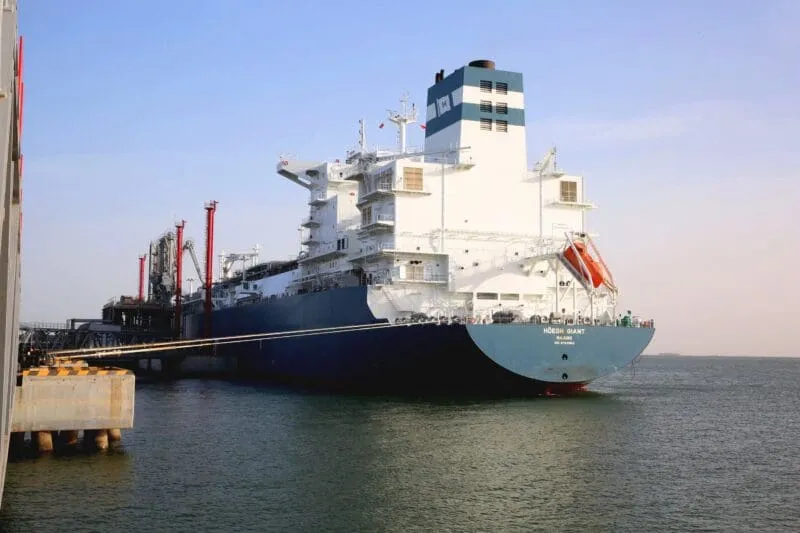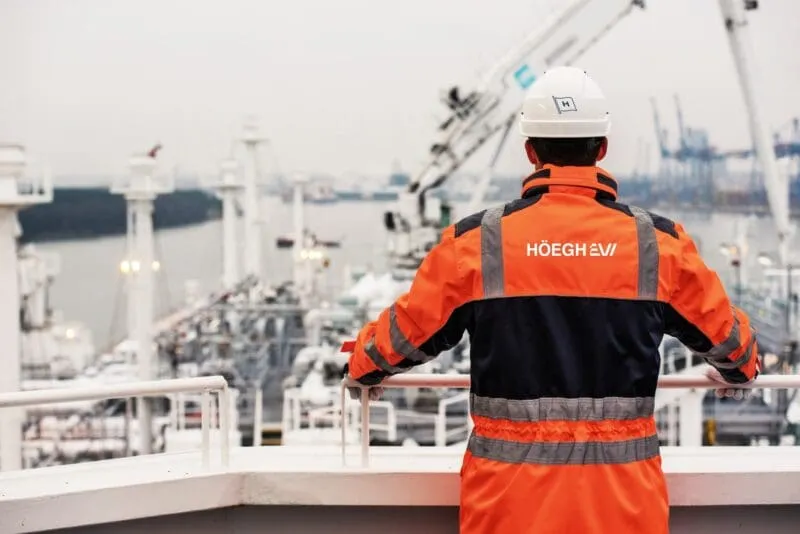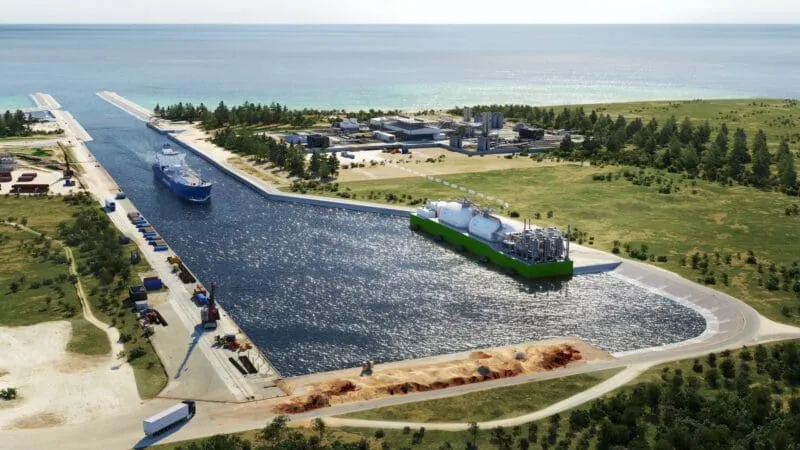Where adaptable infrastructure meets pioneering innovation,
we balance today’s needs and tomorrow’s clean energy ambitions.
Delivering energy independence
Strong operational platform
Transition-ready infrastructure
Bridging LNG supply
FSRUs: connecting global energy markets
FSRUs are a vital link connecting those who produce energy molecules and those who import them on behalf of consumers. Moored in harbors or off-shore locations that are close to national gas pipelines, the FSRU receives LNG from overseas markets via specialized LNG carriers. Regasification technology onboard the FSRUs’ converts the LNG back to its original vaporized form. The gas is sent seamlessly into the energy grid via a high-pressure gas receiving facility, ensuring there is a steady, reliable flow of energy for industrial and household consumers.

Adaptable solutions
Adaptable infrastructure for a world in transition
Höegh Evi is building the infrastructure needed to develop and enable clean energy markets. In a world of rapid change where energy demands differ greatly between regions, we design import solutions to create vital connections. Our solutions offer flexibility and can be moved or adapted as market dynamics evolve – providing reliable energy while helping countries reduce carbon emissions.

LNG solutions
From FSRUs to LNG carriers to LNG terminal services, we own and operate adaptable, cost-efficient and reliable solutions for LNG import. Rooted in a history of excellence and innovation, Höegh Evi is proudly accelerating countries to energy security and will continue to generate long-term value and sustainable growth within the LNG sector.

Clean energy solutions
With 50 years of experience in liquid gas handling and technology, we leverage existing infrastructure to unlock emerging ammonia and hydrogen markets and offer solutions for carbon transport and storage. Together with our partners, we are developing game-changing ammonia cracking technology and groundbreaking CCS offerings. With an unparalleled track record for technical and commercial innovation, operational excellence, and an integrated team, Höegh Evi is piloting the era of clean energy.
Safety, reliability, and efficiency
Operational excellence
Höegh Evi is known for reliable LNG import infrastructure, storage and regasification services. Working across five continents, we operate our assets to the highest technical standard while prioritizing safety, cost efficiency and the environment. Not only do we aim to meet international standards and local rules for health, safety, security and the working environment, we strive to go above them. Our record of almost 100% technical availability and close to zero lost-time injury frequency (LTIF) demonstrates our commitment to excellence.
Market leaders
Our technical and commercial innovations, operational excellence, and integrated team have made us a leader in marine energy infrastructure.
Capital and time-efficient delivery
From project execution to operations, with close to ~100% uptime.
Floating LNG terminals
We have successfully built ten FSRUs and completed around 2,000 ship-to-ship operations safely and efficiently.
World-class fleet
Owners and operators of ten FSRU’s and three LNG carriers, our fleet is one of the world’s largest and most modern in the LNG industry. Today, half our fleet of FSRU’s are located in Europe.